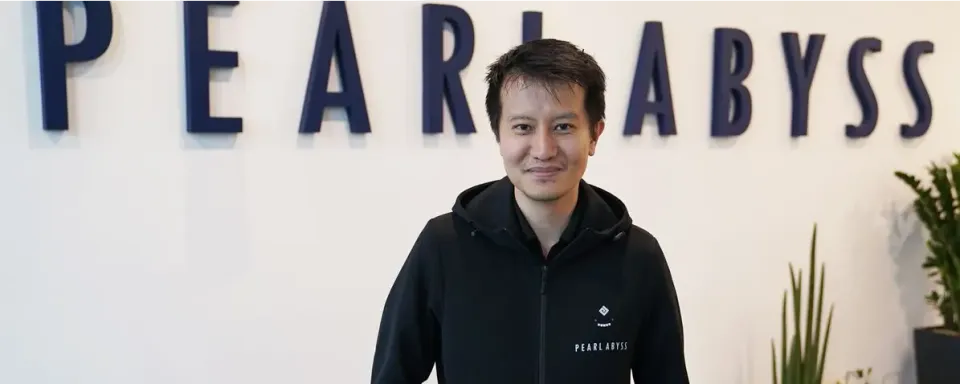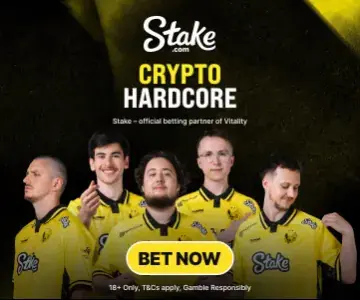- leef
Interviews
20:40, 20.01.2025

The creator of Counter-Strike, Minh Le, gave an interview to Eric Shock, where he shared memories of creating the game, his career, and views on the industry's development. During the conversation, he talked about how the iconic shooter came to be, why he stopped playing it, recalled his favorite maps and modes, and spoke about working with Valve, the issue of cheating, and the popularity of CS, which has persisted for more than two decades.
The first question in the interview was about how long ago the creator of Counter-Strike, Minh Le, played his game and why he stopped doing it.
I played when I created the game in 1998. Until 2003, I played every day, and I was in the top 3 players. But after 2005, I stopped playing because I dedicated too much time to the game and did not become a professional. The last time I played was about five years ago with friends in CS:GO. It was fun, but now I'm not as good as I used to be.
Speaking about his emotions connected with the game, he noted it was one of the best periods of his life.
When I played actively, it brought incredible emotions. I enjoyed running and shooting, especially with the MP5. I was an entry fragger and always loved the game's dynamics. Counter-Strike gave me many friends, whom I met during the game. It was one of the best periods of my life.
He shared memories of old modes and maps that have disappeared from the game and also shared his favorite map.
I really liked maps with hostage rescues, such as CS_Siege, CS_Militia, and CS_Assault. It was a unique gaming experience, but now bomb maps have become more popular due to their balance. Nevertheless, I enjoy recalling the old modes.
About his last gaming experience, he mentioned he's not as skilled as before, but the memories of the past remain vivid.
The last time I played was about six years ago. Before that, I stopped playing in 2005, as I switched to other projects and games. Returning to the game, I realized that my reflexes are not the same, but the memories of the past make every game session special.
The creator expressed his opinion on Valve's approach to developing the game, noting that Valve is doing well and he is satisfied.
Yes, I am very happy. Valve takes a methodical approach to development, not making changes for profit and not radically changing the game. They focus on maintaining stability for both old and new players, which makes the game special.
After leaving Valve, he received several offers but chose a different development path.
After leaving Valve in 2006, I received offers, but I didn't accept them. Later, I worked on several projects like Tactical Intervention and Rust, as well as collaborated with Korean companies.
He also spoke about the issue of cheating and methods to combat it.
Cheating in the game began back in 2002. Valve actively fights it, but it's impossible to completely eliminate the problem. Cheats are like a virus that needs constant updating. Despite the difficulties, Valve does everything possible to control the situation.
Continuing the discussion about cheating and anti-cheats, he answered a question about AI's potential in fighting cheaters.
Yes, AI-based anti-cheats can become a powerful tool. But it's important to note that there can be false positives. An ideal solution would be combining AI with human verification, as in the Overwatch system.
He proposed his vision for solving the cheating problem.
I would use an approach similar to the Korean system, where players register with passport data. This significantly reduces the likelihood of cheating. However, such a system is difficult to apply in Europe and America due to privacy concerns.
The creator recalled working with Gabe Newell and shared his impressions.
Gabe is an incredibly creative and interesting person. He was passionate about various things, from collecting knives to throat singing. His vision for Steam changed the gaming industry.
He talked about how he felt when he sold the game to Valve.
I was happy to work with Valve. It allowed me to collaborate with talented people and develop the game with them. I only have good memories of working there.
While working at Valve, he participated in development up to version 1.6 and tried to create a CS2 prototype.
I worked on Counter-Strike up to version 1.6. Later, I tried to make a CS2 prototype, but the project was not realized.
Finally, he confessed that he did not expect the game's popularity.
Valve doesn't radically change the game, which allows veterans to return and enjoy the same process they remember, and newcomers to easily get accustomed. It's like football in the world of competitive games: it takes many years of training, and the game retains its uniqueness. I hope people will still be playing Counter-Strike in 25 years. Valve has done an amazing job keeping the game alive and interesting.
Comments
Upcoming Top Matches
Latest top news



![[Exclusive] torzsi: "Beating Vitality was one of our goals this season"](https://image-proxy.bo3.gg/uploads/news/252581/title_image_square/webp-02c0a699fd97d2b4717f547f151c4583.webp.webp?w=60&h=60)
![[Exclusive] donk: “I want to build my story—a true career”](https://image-proxy.bo3.gg/uploads/news/249865/title_image_square/webp-ad6607198a36e11bb481727d1cb87444.webp.webp?w=60&h=60)


No comments yet! Be the first one to react